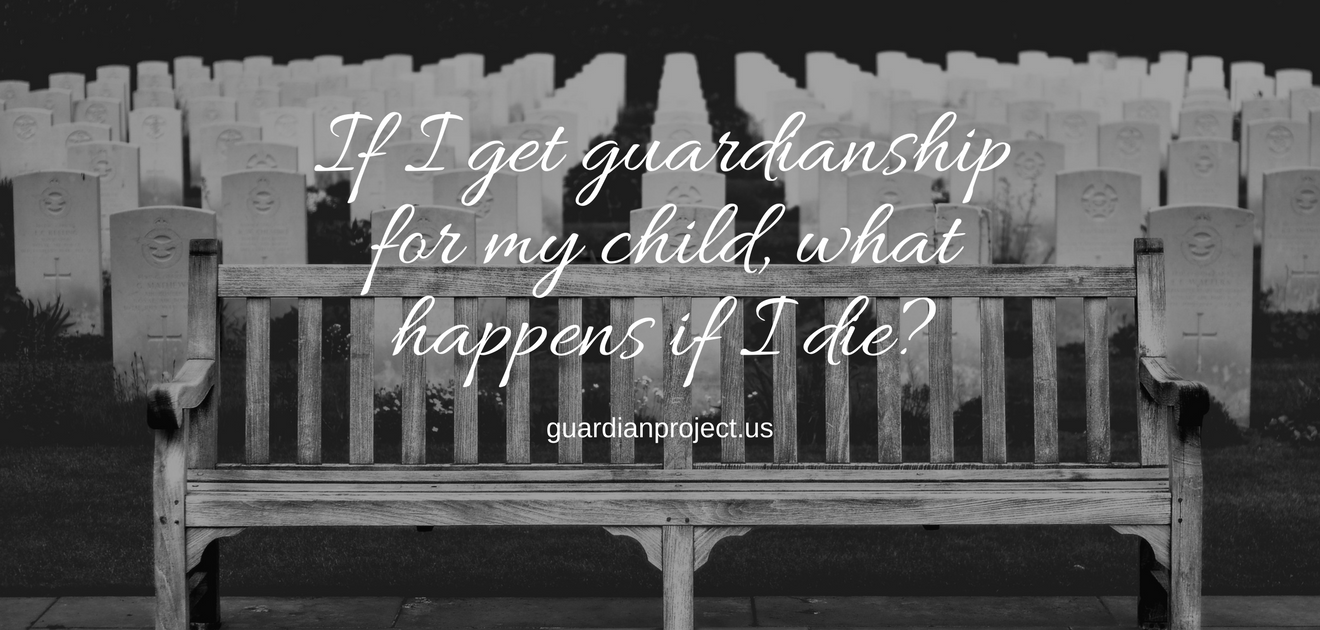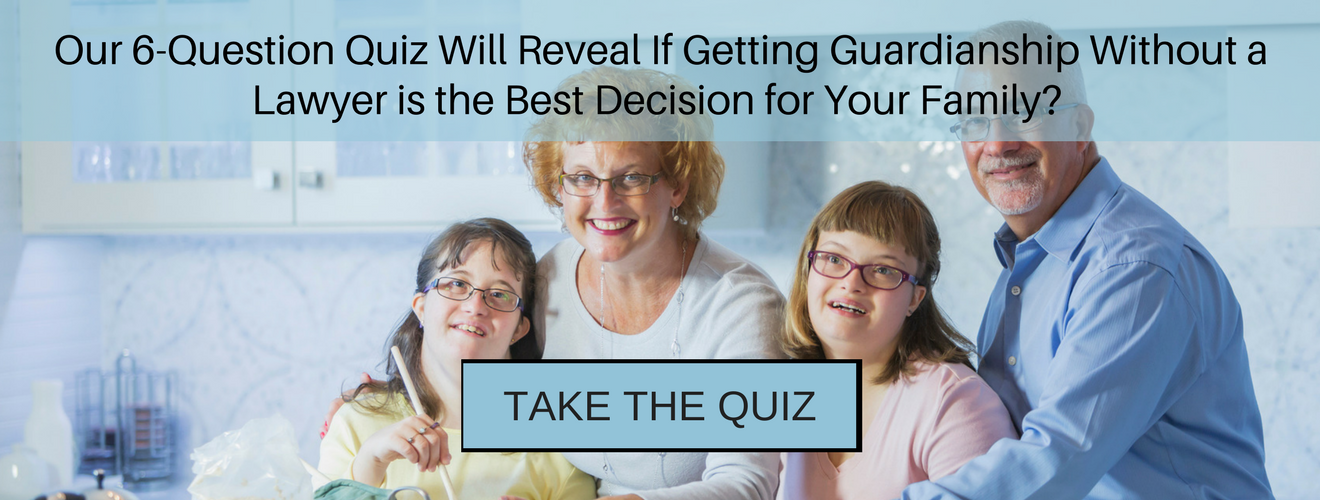How to plan for your death when you have guardianship of your adult child with a disability.
It’s human to avoid thinking about your own death. And it’s a big reason why so many of us put off estate planning.
But if you’re the court appointed guardian advocate for your child with a disability, your family situation becomes much more complicated.
In the eyes of the law, once a child turns 18, they become an “adult.” The right to make major life decisions, like accepting medical treatments, entering into contracts or getting married, automatically transfers from you to your child.
For some young adults with a developmental disability, this transfer of rights could jeopardize their health or safety.
It is for this very reason why many special needs parents seek court appointed guardianship when their child turns 18.
You Can’t “Will” Court-Appointed Guardianship
If you die, you can transfer ownership of your assets and personal belongings through a simple will. You can even assign custody of your minor child to another adult.
However, you cannot appoint court appointed guardianship of your child through your will.
When a court appointed guardian advocate dies, unless an alternate guardian is arranged beforehand, your child will be left without a guardian.
Many guardians are not aware of this rule and are caught off guard when they finally learn. Most just assume that once they die, another family member will take up the guardianship mantle automatically.
However, unless prior arrangements are made with the court, a new guardian would have to petition the court and go through the whole guardian advocate process.
If you die unexpectedly, this could leave your child unprotected, possibly for months.
Co-Guardians: One Option with Significant Risk
One option is to have a co-guardian to share the responsibilities and take full control should one of you unexpectedly pass. But there are some significant risks to co-guardianship.
Most notable, with co-guardians, both guardians must agree on all decisions. If there is disagreement and one party refuses to change their position, the dispute must be resolved by the court.
According some lawyers, these types of disputes come up most frequently where co-guardians are married and later divorce, or with emotional decisions like residential placement and end of life care.
Once the court is involved, disagreements can lead to substantial delays, and could involve multiple court appearances. The ward’s lawyer must be involved, and each co-guardian may get a lawyer involved.
This can become costly, will negatively affect your child, and is why many guardianship lawyers advise clients against co-guardianship.
If you and your co-guardian have the ability to make decisions with minimal disagreement, it could be a viable solution— however, there are better options.
A Standby Guardian May Be the Best Solution
Florida law provides for the appointment of standby, or replacement, guardian advocate. This is a person who is selected by the original guardian advocate at the time of the original guardian advocate filing.
If the original guardian advocate becomes unable to perform their duties because of incapacity, death or their resignation, the standby guardian can immediately step in as guardian advocate. This guarantees no lapse in care for your child.
Within 20 days from taking over as guardian, the standby must petition the court to confirm their appointment, which includes filing an oath. But the need to go through the entire guardian advocate process is eliminated.
One caveat: until confirmed by the court, the standby guardian cannot deal with the child’s property, other than to safeguard it. If there are assets in your child’s name that they rely on to live, your child may not have access to funds until the standby guardian gets letters from the court.
A Supplemental Needs Trust is Advisable
To make sure that your child has adequate resources until the standby guardian is appointed (and for other reasons), many parents set up a supplemental needs trust (sometimes referred to as a special-needs trust).
Since the court does not have jurisdiction over a supplemental needs trust, the trust can provide for a trustee’s responsibilities to automatically transfer to a third party upon their death, incapacity or resignation. No court filings are required, so there would be no gap in your child’s access to funds.
One thing to note, the replacement trustee does not have to be the standby guardian.
In some cases, it may be better for the trustee to not the standby guardian; for example, in situations where the standby guardian has experience in caring for your child, but has limited financial experience.
Other experts recommend choosing a financial advisor for the assets in the trust so you know that funds will be managed properly after you pass.
Setting up a trust and hiring a financial advisor to manage assets are important tools parents can use to make sure their child with a disability has access to assets they will need to live long after the parents’ passing.
Give Your Successor the Information They Need
Whether you choose a co-guardian or standby guardian, it’s your obligation to make sure that person is prepared to do their job once you’re gone. The last thing you want is to chance your child’s care to the courts.
Make sure you document all guardianship decisions, including their living arrangement, daily care, and any changes to their medications or benefits. Make sure that your replacement has access to this log, whether it be a shared computer file or a document left with your attorney.
Conclusion
The bottom line is, good parents get guardianship for their children with special needs to keep them safe.
Death is a scary thing to think about, but the best thing you can do for your child is to learn as much as you can about transitioning guardianship and plan ahead. That way, should the unexpected happen, you know that your child will be left in good hands.

